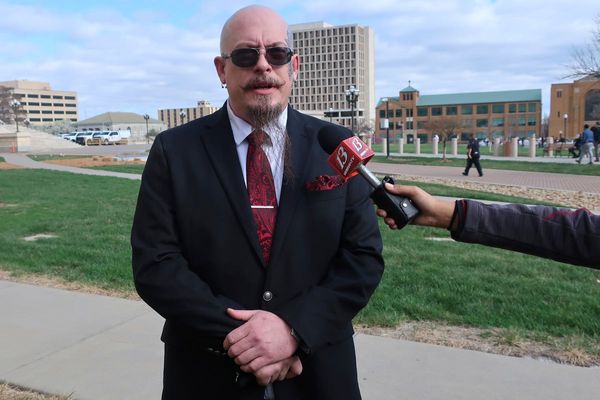
The Albanese government has announced that after 11 long years, the last refugee has finally been taken off Nauru.
But before you break out the brass band, unfortunately the detention centre gates will remain ready to incarcerate any future refugees arriving by boat. Oh, and 80 refugees remain on PNG. And the $350m bill, paid by you, the Australian taxpayer, will continue each and every year.
After the messy demise of the Morrison government, which made cruelty its own personal calling card, many people hoped for a change in approach.
But nothing in Labor’s policy that it took to the 2023 election prevents them from sending children back to Nauru. Nothing stands between newly arrived refugees and another 11 years of purgatory. In fact, the new government has adopted, word for word, the Morrison government’s Operation Sovereign Borders.
So it’s business as usual (a nasty, brutal business) for refugees arriving by boat. And for human rights lawyers like us it raises the question – what can be done to stop our governments repeating the same inhumanities of the past?
We could plea for compassion, pointing in exasperation to the 500 people drowned in the Aegean Sea this month, to those still in PNG, to the thousands of lives still held in limbo on punitive visas, to the names of the tortured and the dead and the 2,031 refugees who have lost their lives on the border since 2000.
We could appeal to fiscal logic, to the $350m bill we have to pay every year to the likes of multinationals such as Canstruct, Broadspectrum and MTC that profited handsomely while refugees were plunged into misery and mental illness.
Or we could warn about the risks of a proliferating cruelty, as the UK government imitates our own policies in its “Rwanda solution”, and as Europe discards its values on the Greek islands of Samos, Lesbos and Kos.
But we’ve seen this tragic farce play out time and time again, and we know how it ends – in a litany of horror. The lifeless bodies of migrants, the self-destruction of caged refugees, the sewn lips, the suicides.
“Australia’s turn-back policy remains in place,” a home affairs spokesperson blithely wrote, copy and pasting from 11 years of evasive responses held on file at the Department.
The men and women of our border forces stand “ready to receive and process any new unauthorised maritime arrivals, future-proofing Australia’s response to maritime people smuggling”, they tell us.
Lawyers at the National Justice Project have been fighting for years to not only hold the government to account for the human damage caused by this policy, but to put up a legal barrier to prevent the worst of the inhumanities of offshore detention in the future.
Through dozens of court cases, we aim to demonstrate a legally binding duty of care on the minister for home affairs for each and every refugee they exile to offshore detention. After years of delay we are finally in a position to take these cases to court in the next 12 to 18 months.
A victory is no magic bullet but it will be a decisive blow to offshore detention. It will make the government (and its cheerleaders in the media) think twice about sending children to offshore detention, about reneging on their obligation to provide for adequate healthcare and education and about discarding their obligations under international human rights law. And some of the world’s most vulnerable people will receive medical care in Australia.
Our refugee policies are a stain on the national conscience. It’s like over the past 20 years the country has been addicted to cruelty. Who in our public life and politics has the courage to join us to break this nasty and brutal habit?
• George Newhouse and Duncan Fine are two of the founders and directors of the National Justice Project
• Crisis support services can be reached 24 hours a day: Lifeline 13 11 14; Suicide Call Back Service 1300 659 467; Kids Helpline 1800 55 1800; MensLine Australia 1300 78 99 78; Beyond Blue 1300 22 4636







